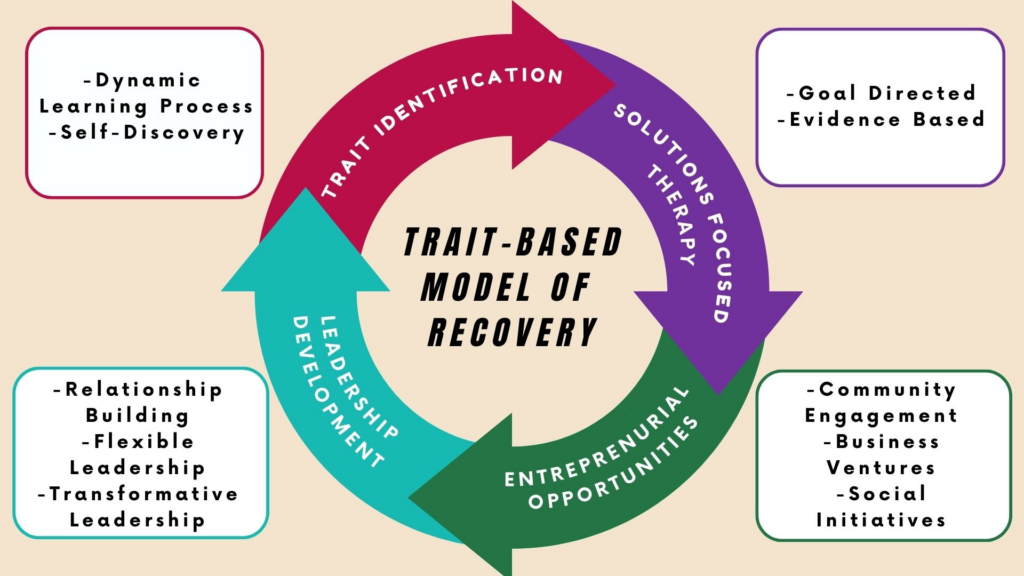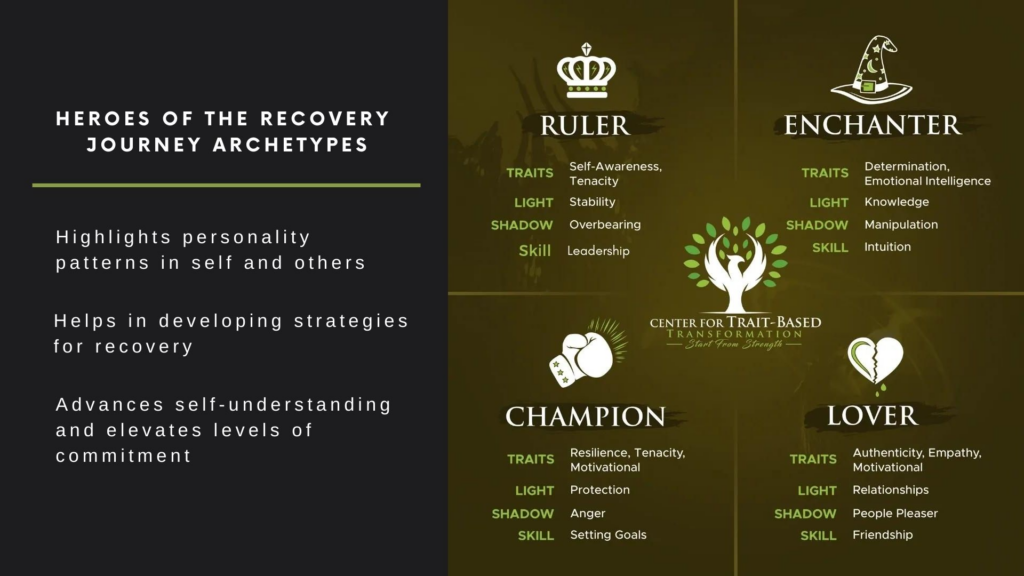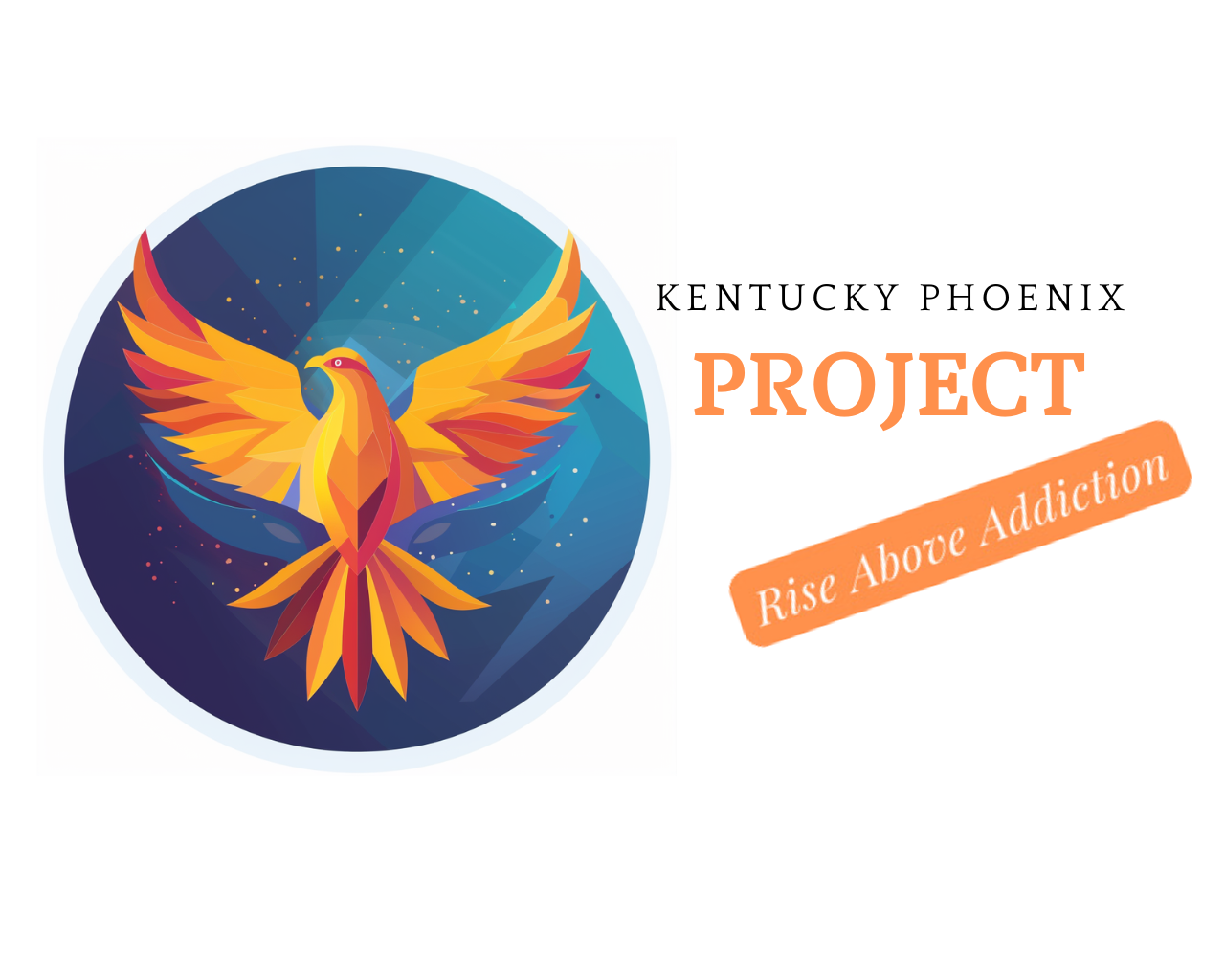Discover the Power of Dr. Roop’s Trait-Based Model of Recovery in Kentucky: Empowering Your Path to Leadership and Sobriety
At Kentucky Phoenix Project, we are dedicated to transforming and helping individuals rise above addiction across Kentucky. That’s why are exited to announce that we have become an approved provider of a groundbreaking new treatment model, The Trait-Based Model of Recovery.
Developed by Dr. Jason Roop, the Trait-Based Model of Recovery is an approach that focuses on leveraging personal strengths and leadership traits to achieve lasting sobriety. This innovative model not only supports recovery but also empowers individuals to become leaders in their communities. By focusing on what makes each person unique, we pave the way for a more fulfilling and resilient path to recovery.
Bringing Strength-Based Recovery to All of Kentucky
We are thrilled to announce the introduction of Dr. Roop’s Trait-Based Model of Recovery into our programming and to the entire state of Kentucky through our innovative online cohorts.
This online delivery method of the Trait-Based Model of Recovery emphasizes the power of starting from strength and is designed to help individuals with substance use disorder (SUD) harness their inherent traits for positive personal and social transformation. It allows individuals across the state to gain access to a proven and enjoyable program from the comfort of their homes.
Why Start from Strength?

The Trait-Based Model of Recovery is a strengths-based approach that identifies leadership and other personality traits, building upon internal strengths to establish goals and opportunities for personal and social enhancement.
By integrating solutions-focused therapy, entrepreneurial opportunities, and leadership development, this model aims to facilitate clients’ reconnection with their communities, enhance their self-confidence, and foster increased hope and commitment. Instead of dwelling on weaknesses or challenges, this approach highlights the positive attributes of clients, empowering them to chart their own unique path to recovery.
Aligned with the principles of mental health recovery, this model emphasizes individuals’ capabilities and assists them in cultivating self-assurance. Each person possesses distinct strengths and abilities that can be harnessed throughout their recovery process.
Key Components of the Trait-Based Model of Recovery
- Trait-Identification
- Participants learn about the 10 leadership and other personality and character traits people with SUD possess. Understanding these traits productively leads to better self-awareness, creative thinking, social intelligence, and improved recovery outcomes.
- Solutions-Focused Therapy
- This model integrates both clinical and peer-led support, focusing on recognizing and building upon the strengths and resources clients already possess. Regular mindfulness and reflection practices help participants remain focused on personal development and establishing meaningful social connections.
- Entrepreneurial Opportunities
- People with SUD are often creative and determined individuals. This model offers clients the chance to develop entrepreneurial skills, fostering the creation of careers and a sense of purpose in their lives. Graduates are connected with local businesses and nonprofit communities to identify areas of need for new ventures.
- Leadership Development
- The model builds on the understanding that people with SUD and effective leaders share many of the same traits. Participants learn how their traits make them transformative leaders, impacting and inspiring others with authenticity, transparency, and collaboration. This deepens social engagement and improves organizational culture.
Proven Effectiveness
Research has indicated the effectiveness of strengths-based approaches in promoting recovery outcomes. Clients using the Trait-Based Model of Recovery often report higher levels of abstinence and sustained recovery compared to those receiving traditional treatment methods.
Discover Your Leadership Traits

To help individuals understand their unique leadership traits, we encourage you to take the model’s assessment titled “What Hero of the Recovery Journey Are You?”
This assessment allows participants to identify their leadership type within the Trait-Based Model of Recovery. Discovering your hero type can provide valuable insights into your strengths and how to leverage them for successful recovery.
To take the assessment or learn more about the model from the Center for Trait-Based Transformation, visit their website at www.startfromstrength.org.
Future Plans
We are starting small with a few cohorts running each month and will build to higher capacity as we grow. Each cohort will have a graduation ceremony, certificates, and other exciting activities to celebrate the achievements of participants.
About Dr. Roop
Dr. Roop spent 17 years in active addiction before entering recovery in 2013. He earned his master’s degree in theology in 2018 and his Ph.D. in Business Management with a specialization in Leadership in 2022. Currently, he serves as the pastor at Asbury UMC, Executive Director of Workforce Education at Campbellsville University, and board member for Hometown Connect. Appointed to the Kentucky Opioid Abatement Commission by the KY Attorney General, Dr. Roop’s research focuses on the positive qualities found in people with SUD, aiming to change how society views addiction and recognizing the leadership potential in recovery.
Resources
For those interested in delving deeper into Dr. Roop’s research and understanding the foundation of the Trait-Based Model of Recovery, we have compiled essential resources that provide valuable insights:
- Addiction and Leadership: How Authentic and Transformative Leaders are Emerging from the Adversity of Substance Use Disorder
Read the article - Unexpected Heroes: How People in Addiction Recovery can Help Solve the Crisis of the Great Resignation
Read the article
Explore these resources to learn more about the innovative research that led to the development of this transformative model and how it can make a significant impact on recovery and leadership.
Join Us
If you are currently grappling with substance use disorder, we encourage you to explore this model further. Stay tuned for more details about the upcoming cohort and registration process. At Kentucky Phoenix Project, we are dedicated to helping individuals discover their strengths and achieve lasting recovery.
Contact us today to find out how and when you can get started with the Trait-Based Model of Recovery.


